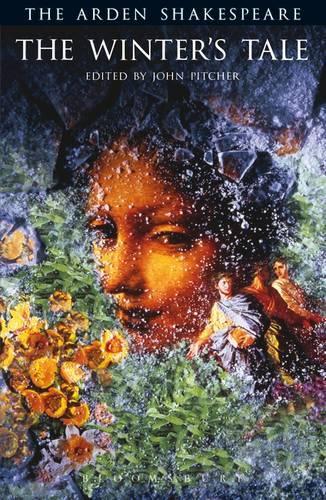
The Winter's Tale: Third Series
(Paperback)
Available Formats
Paperback, New edition
Published: 18th September 2013
Paperback
Published: 24th June 2015
Paperback
Published: 1st November 1998
Paperback
Published: 1st October 2021
Paperback, New edition
Published: 5th January 1995
Paperback
Published: 20th March 2025
Paperback
Published: 19th October 2010
Hardback
Published: 1st September 2010
Publishing Details
The Winter's Tale: Third Series
By (Author) William Shakespeare
Edited by John Pitcher
Bloomsbury Publishing PLC
The Arden Shakespeare
19th October 2010
United Kingdom
Classifications
Tertiary Education
Non Fiction
Literary studies: c 1600 to c 1800
Educational: First / native language: Literature studies
Classic plays / drama
822.33
Physical Properties
Paperback
496
Width 128mm, Height 196mm, Spine 25mm
536g
Description
One of Shakespeare's later plays, best described as a tragi-comedy, the play falls into two distinct parts. In the first Leontes is thrown into a jealous rage by his suspicions of his wife Hermione and his best-friend, and imprisons her and orders that her new born daughter be left to perish. The second half is a pastoral comedy with the "lost" daughter Perdita having been rescued by shepherds and now in love with a young prince. The play ends with former lovers and friends reunited after the apparently miraculous resurrection of Hermione.
John Pitcher's lively introduction and commentary explores the extraordinary merging of theatrical forms in the play and its success in performance. As the recent Sam Mendes production at the Old Vic shows, this is a play that can work a kind of magic in the theatre.
Reviews
a play where miracles do happen and redemption does eventually come, but at a terrible price' * Lyn Gardner, Guardian, 22.9.09 *
Like all of Shakespeare's later plays, this is a realistic fairy tale' * John Peter, Sunday Times, 20.9.09 *
'Shakespeare's perturbing fable' * Dominic Cavendish, Daily Telegraph, 18.12.10 *
'An age which loves science fiction and fantasy should take The Winter's Tale to heart' * Libby Purves, The Times, 18.12.10 *
'Cleverly and clearly designed for study, notes and commentary appear on the same page as the text and the introduction encompasses the play's historical, cultural and performance contexts as well as a survey of critical approaches.' * Sardines Magazine (Autumn 2010) *
Author Bio
John Pitcher is Professor of English at St John's College, Oxford.
